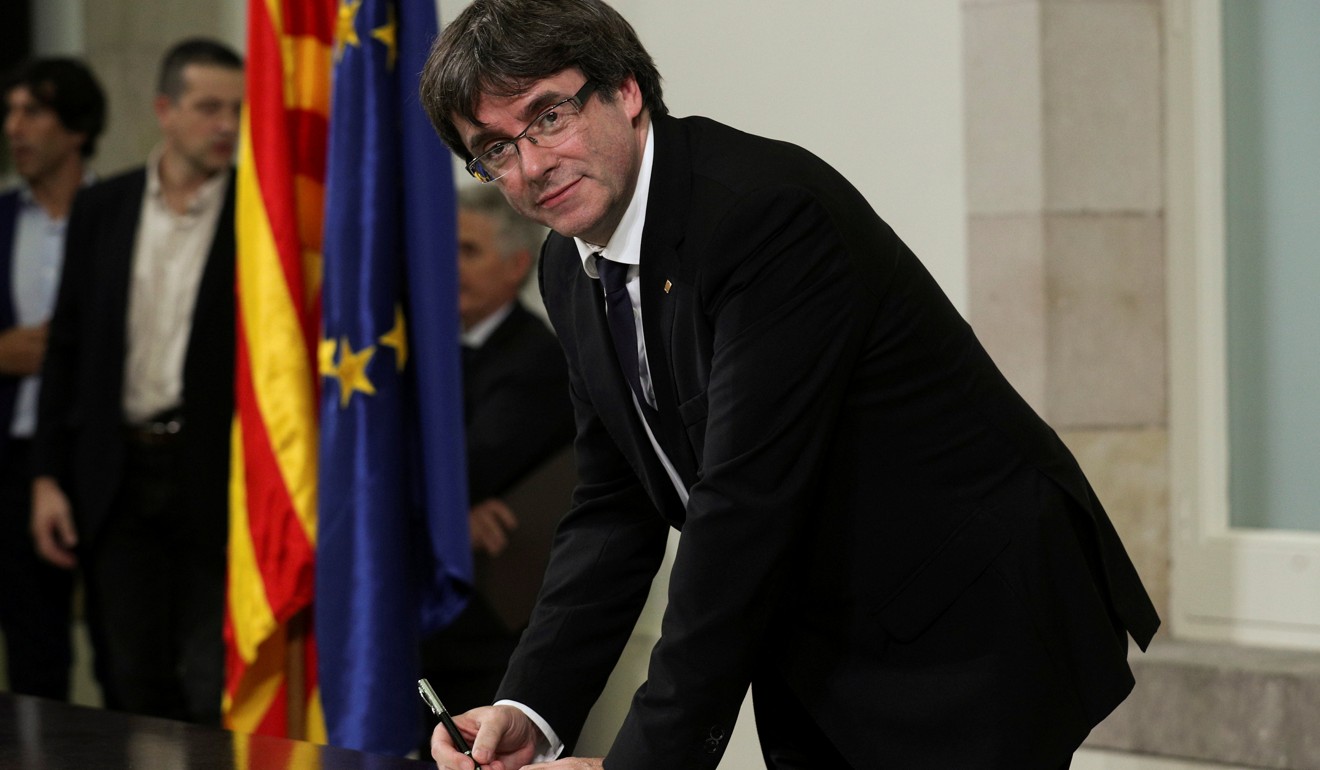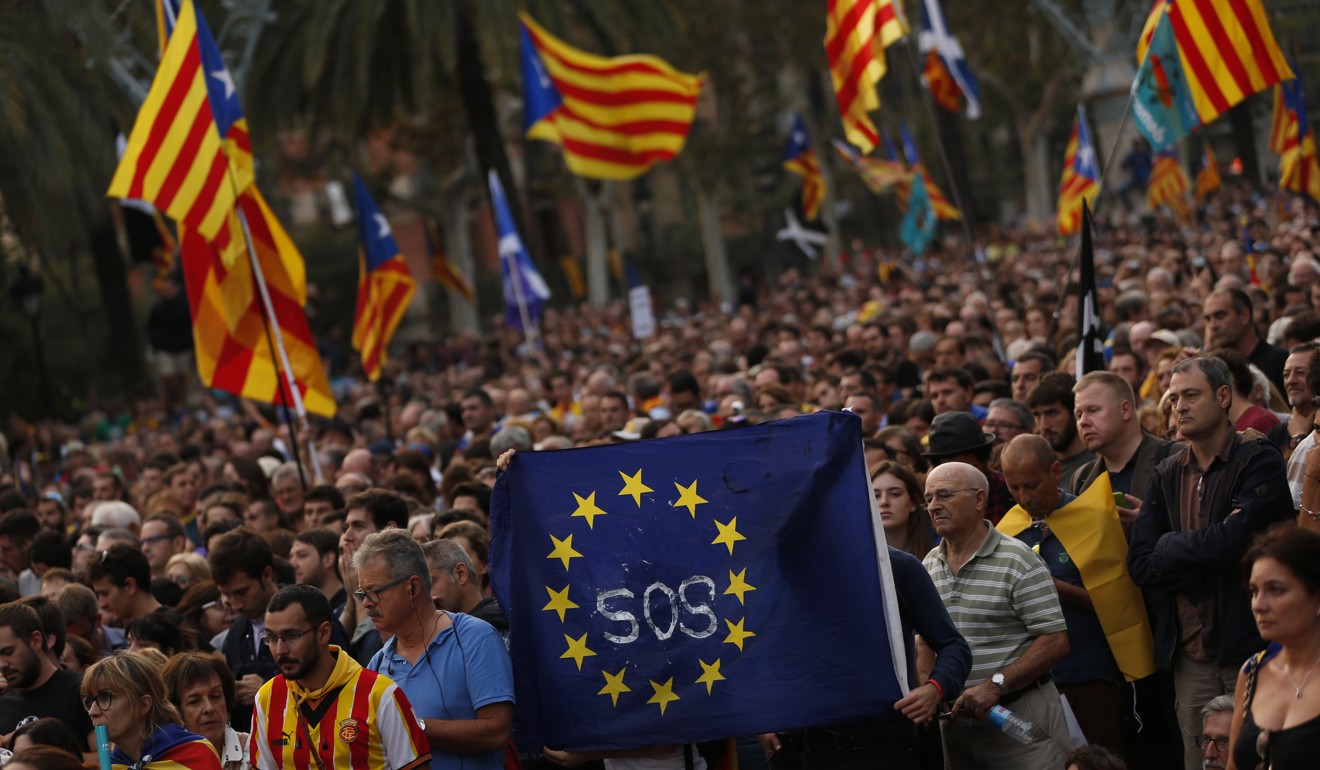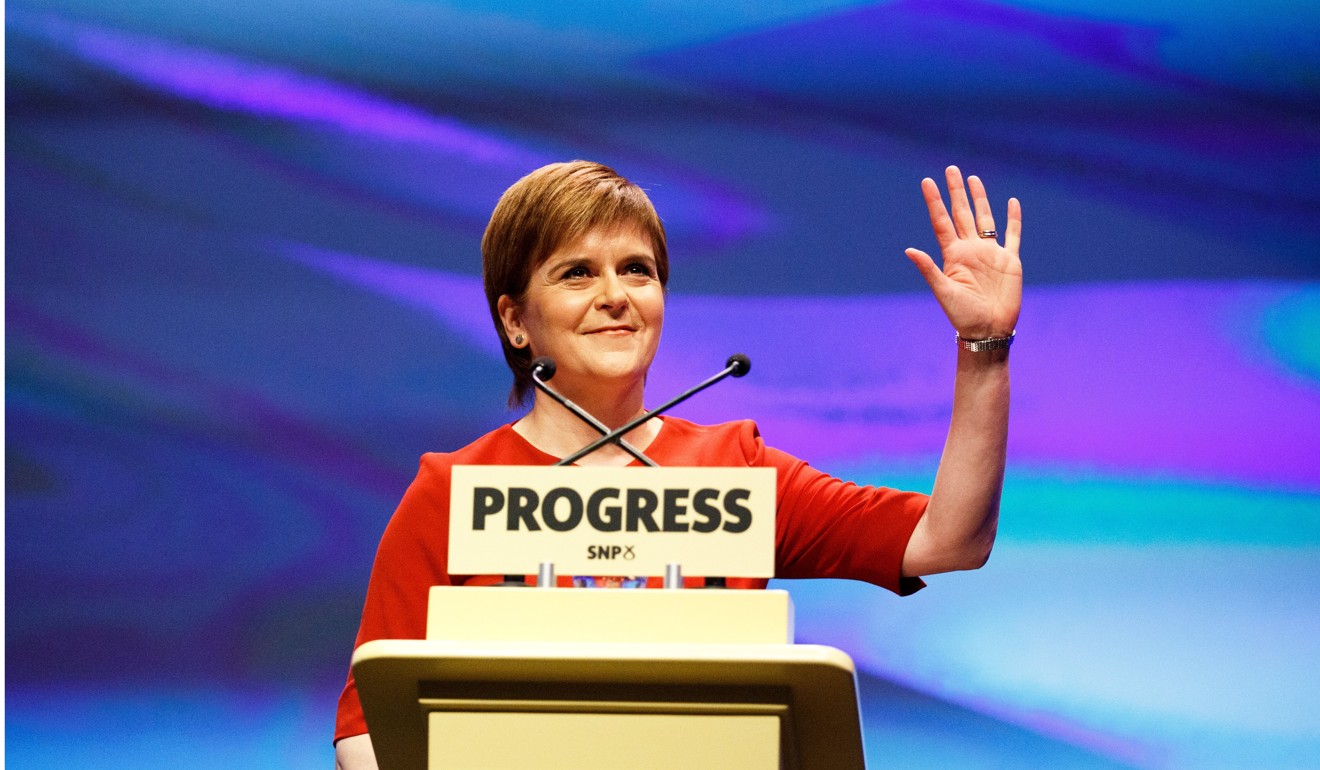
Analysis | Catalan independence averted for now, but regional separatism is simmering across Europe
From Edinburgh to Bruges, breakaway movements are pulling at the seams of the EU
Europe’s separatist movements aren’t going away.
While the threat of an immediate rupture in Spain has been averted for now, resentment simmers from Edinburgh to Venice. The frustrations stirred up by continent’s economic woes might have manifested themselves as an anti-immigrant populism in eastern Germany or the French rust belt; but in Bruges, in Bilbao and in Barcelona they spurred separatist movements seeking to break away from Europe’s traditional nation states and strike out on their own.

Many of Europe’s modern nation states were forged out of the ashes of 19th century wars, and as they’ve bound themselves more tightly over the past 20 years, with a single currency and open borders, their ancient regions have become restless.
While national identities have been blurred under the umbrella of the 28-nation EU, regional individuality has flourished. And where once that was confined to language, music and flags, now it’s about political independence.

Until now, the UK looked the most likely country to break up. In 2014, Scotland held a referendum, though unlike in Spain it was sanctioned by the national government. Scots, who make up less than a tenth of the British population, voted 55 per cent to 45 per cent to remain part of the UK, but the vote failed to put the issue to rest.
In the Brexit referendum of 2016, Scotland voted strongly for the UK to stay in the EU and Scots now face being pushed out of the bloc by the overall UK result. That’s prompted Nicola Sturgeon, leader of the Scottish National Party, to promise to continue her push for independence.
“We will consider the timing again when we have more clarity on what we face,” Sturgeon told the BBC this week. The case for independence “is becoming greater and stronger by the day.”

That French-Dutch fault line makes Belgian politicians particularly sensitive to other independence movements around Europe and Prime Minister Charles Michel, from the country’s poorer French-speaking region, was the first EU leader to break ranks over Catalonia. After the violence on October 1, Michel called for “political dialogue.” The European Commission insists it’s an internal matter for Spain.
The Commission also says that any region that secedes from a member state will find itself outside the bloc – and cut off from its markets and financial system. That’s a particular source of frustration for separatists, who tend to be favourable to the European Union because it serves as a counterweight to the nation-state.
“The future of more than 70 European nations, the future of Catalonia, the future of my own Flemish community, lies not in brutal separation, but lies in deep cooperation – cooperation inside federal structures in a federal Europe,” Guy Verhofstadt, a former Belgian prime minister, told the European Parliament last week.

